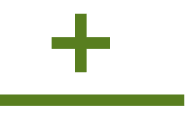The industrial landscape is transforming with a surge of interest in prefab modules and modular, steel skid-built construction. The evolution of 3D CAD, the internet, robotics, and other next-generation technologies has supported this movement, helping to improve its efficiency and feasibility. However, the industry hasn’t fully embraced this alternative approach to construction.
This is mainly attributed to a combination of limited awareness of the impacts of Prefabrication, Preassembly, Modularization, and Off-site Fabrication (PPMOF) and because critical early decisions regarding applicability are commonly deferred, which can limit its use in projects that could otherwise provide substantial benefits.
As we discuss modular process plants, keep in mind that the decision to use modular construction should be made after carefully considering your project's specific requirements. While modularization does provide several attractive benefits, such as time savings, cost savings, and increased safety and quality, it is not right for all projects. An early-phase strategic assessment should help you decide between modular and traditional construction approaches.
Modular Process Plants
Modular process plants are built using prefabricated modules that are manufactured offsite in a controlled environment before being transported to the site and assembled. This approach may be appropriate for projects dealing with strict time constraints, the need for improved quality control and safety, and other challenges such as limited manpower.
Front-End Planning and Design Phase
Modular process plant construction should start with a front-end planning and detailed design phase, which is crucial for laying a successful foundation for the entire project. Planning should involve the specification of project requirements, including both technical and commercial requirements. It should also include a careful assessment of modularization drivers, which we’ve listed below for further consideration.
A detailed design phase should act as the project’s blueprint, outlining project goals, operating requirements, and the environment in which it will operate. It should guide the project from initial planning all the way through to construction and commissioning.
Modular Process Plants: Make Informed Decisions
Careful consideration of modularization drivers should guide initial engineering decisions toward creating a design that captures the capital project’s goals, requirements, and rationale behind choosing modularization. This phase is essential to align project stakeholders and ensure that decisions are made with a clear understanding of their impact on project outcomes.
Operational Best Practices
After installation, regular quality checks, routine maintenance, material control, and calibration testing can help ensure your plant continues to operate within design specifications and reliably over time. Implementing a comprehensive quality assurance program on an ongoing basis can help improve performance and extend the working lifespan of your new plant.
Partner with H+M Modular for Custom Fabricated Equipment, Modules, and Skids
Modular process plants have become a popular alternative to traditional construction. However, skid-build construction is not right for every project. The success of modularization depends on identifying project requirements during the early stages of a capital project.
It's also important to recognize that stick-built construction remains valuable for most projects, particularly when modular solutions do not offer clear advantages. Working with an experienced EPC contractor with extensive experience in front-end planning and detailed design and engineering can help ensure your modular process plant project’s success.
H+M’s Modular group specializes in designing and fabricating truckable modules, providing exceptional capital project execution from concept to start-up for clients across the United States. From our engineering and fabrication headquarters in Houston, Texas, we can transport your project to wherever you are. For over three decades, we have provided end-to-end solutions for a wide range of project sizes within the energy, chemical, and terminals and logistics industries.
We are dedicated to providing trust, experience, and efficiency through all stages of engineering, procurement, and construction through our proven strategic EPC approach. Our comprehensive services, including front-end planning, detail engineering and design, procurement, fabrication, and construction allow us to take your modular process plant project from conception to completion, tailoring engineering and design solutions to meet your unique needs.

The H+M Industrial Team
For over three decades, we have provided best-in-class capital project management services to Energy and Chemical industries through our proven EPC approach. We are dedicated to providing trust, experience, and efficiency through all stages of engineering, procurement, and construction--on budget and on time.

Partnering with H+M Modular
H+M Modular, a division of H+M Industrial EPC, specializes in custom fabricated equipment, modules, and skids for energy and chemical industries. The approach emphasizes the potential for decreased risk through more controlled fabrication, leading to enhanced quality and safety, reduced labor costs and construction times, improved labor availability, and solutions to geographic challenges. We are dedicated to providing trust, experience, and efficiency through all stages of traditional and modular construction projects using our proven EPFC approach, If you're considering modular fabrication, we invite you to connect with us to learn about how modular solutions can improve project outcomes.





